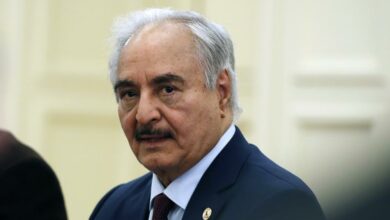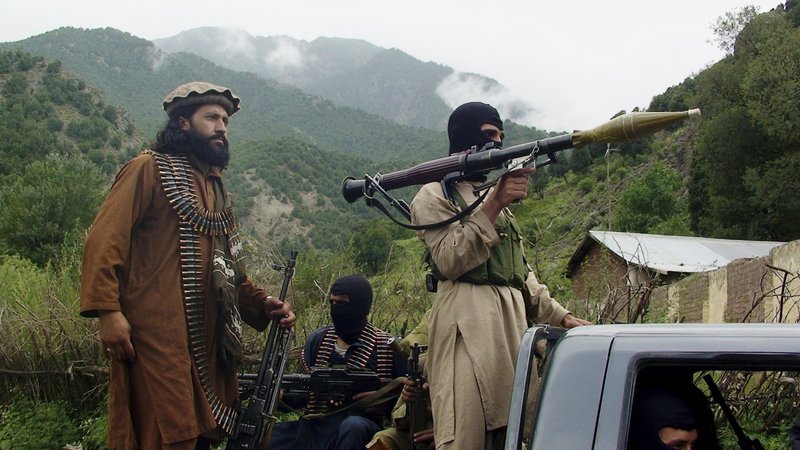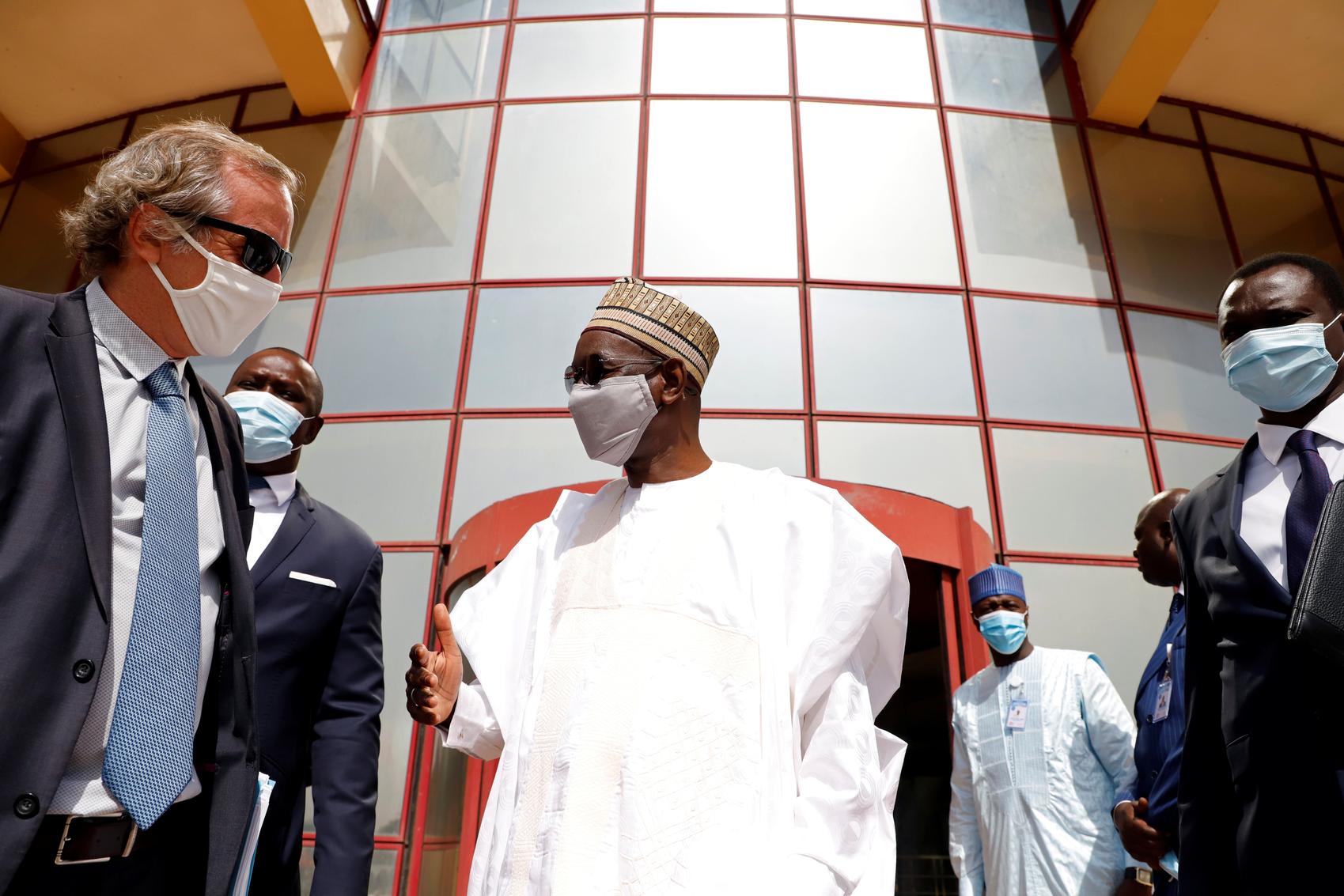Egypt stands at a political crossroads; the decisions made and battles won at this juncture mean the difference between success or failure in the quest for a transition to genuine democracy. As the options are pondered, a debate over the identity of the state has arisen between liberals, who strive to promote their secular agenda, and Islamists, who refuse to divorce religion from the state.
Liberals, who have recently founded several parties to counter Islamist might, had to tweak their discourse to overcome popular aversion to the term “secularism”. Instead of promoting “a secular” state, they have chosen a less offensive expression: “civil state”.
“A civil state is a state that respects the rights of all citizens, despite their race, religion or sex,” said Shady Harb, a liberal youth leader and a spokesperson for the 25 January Revolution Youth Coalition, a loose umbrella group formed during the uprising to bring together different youth groups.
The civil state should be governed by civilians and entail complete separation among three branches of government, added Harb. As to the role of religion in this state, Harb said: “There is no big difference between secular and civil state. But lately, the term secularism has acquired a bad reputation.”
The resilient Islamization of Egyptian society over the last four decades has allowed the term “secularism” to acquire negative connotations that go beyond the separation of religion and state. Islamists have succeeded in convincing most Egyptians that secularism is synonymous with atheism. Some of the most popular Islamist preachers contend that a secular person cannot be Muslim.
For lay Egyptians, a secularist does not observe religious rites and seeks to wipe out religion from society.
Harb tries to challenge this dogma.
“Separating religion from the state does not mean wiping out religion. Religion will remain in houses… and between the individual and God,” said Harb.
In the 1970s, Mubarak’s predecessor, Anwar Sadat, empowered Islamists to defeat his leftist foes as he moved Egypt to an open-market economy. When Mubarak took power in 1981, he uprooted violent Islamist groups, but tolerated peaceful ones like the Muslim Brotherhood and apolitical Salafis. Both groups helped to further Islamized society and propagate conservative piety.
In his famous 2007 book “Making Islam Democratic”, Iranian sociologist Asef Bayat cites unpublished surveys suggesting that of 65 societies, Egypt’s was the most pious, with 98 percent declaring their religiosity, as compared with 82 percent of Iranians and Americans. The prominent academic estimates the percentage of veiled women in the early 2000's at 80 percent.
In addition to relinquishing the term “secular”, liberals ceased challenging Article 2 of the constitution, which stipulates Islamic law, sharia, as the primary source of legislation. Although the article was never fully implemented, liberals, along with Egypt’s Coptic minority, dismissed it as discriminatory against non-Muslims.
“I am against Article 2 from a human rights perspective and I believe it causes more harm than benefit,” said Samer Soliman, a political scientist and a co-founder of the liberal Egyptian Democratic Social Party. “But as a party member, I believe we should not tackle it… In any referendum, people will vote in favor of Article 2, which means if I call for its abolition, I will be engaging in a lost game.”
For Akram Ismail, founder of the Association of Progressive Revolutionary Youth, a nascent movement also preaching “civil state” values, any discussion of Article 2 would only serve Islamists.
“We should not get into this fight,” said Ismail. “Islamists will seize the opportunity to mobilize the people against [secularists] and achieve sweeping victories.”
That mobilization may already be underway. Earlier this month, the Muslim Brotherhood’s Supreme Guide Mohamed Badie reportedly dismissed negative coverage of his group in some local papers as attempts by “secular journalists” to promote a foreign agenda, incite strife and mobilize people against religion.
Despite their deep-seated piety, Egyptians would not necessarily back a full-fledged religious state favored by some Islamists.
“Although the religious discourse has had a strong impact on Egyptian society, I believe that the majority of Egyptians would not approve of a religious state,” said Amr al-Shobaki, a political analyst with the Al-Ahram Center for Political and Strategic Studies, “because the religious state has proven to be a failure.
“Egyptians have seen how the religious state led to secession in Sudan and foreign occupation in Afghanistan. In the meantime, Egyptians do not feel comfortable with the Iranian or Saudi model.”
To assuage concerns, Islamists, in particular the Muslim Brotherhood, have affirmed their commitment to democracy and the “civil state”. But the Islamist perception of civil is different from that of liberals; Islamists contend that a "religious frame of reference" is mandatory.
“We borrowed the term ‘civil’ to refer to the state ruled by men and not God,” Gamal Heshmat, a senior leader of the Muslim Brotherhood, told Al-Masry Al-Youm. “It is a state where people make choices and hold power, it is a state where people can bring their ruler to justice or dismiss him if he makes mistakes.”
But there is no way religion can be separated from the state. “Islam does not endorse any divorce between religion and the state,” said Heshmat.
Given this outlook, the Muslim Brotherhood decided to form the Freedom and Justice Party with the aim, they say, of contesting up to 50 percent of parliamentary seats in the first post-Mubarak election. Other Islamist groups, including Jama’a al-Islamiya have followed suit by announcing the formation of their own political parties, which likewise promote “a civil state with an Islamic frame of reference.”
For critics of these groups, Islamist talk of a “civil state” is deceptive.
“This is a political maneuver; Islamists are using the term 'civil' instead of 'religious' in order not to antagonize the West or the intelligentsia,” said Harb.
Recently, Islamists made several statements prompting critics to question their genuineness in disapproving of a theocratic state. Last month, a senior leader of the Muslim Brotherhood implied that Islamic hudud [capital punishments] could be enforced in the future.
Sobhi Saleh, another senior Brotherhood leader told Al-Masry Al-Youm in March that some Egyptian laws have to be amended to conform to Islamic law. “We have 600 Quranic verses that stipulate certain legislation. Are these verses abrogated or should they become effective?” Saleh asked rhetorically.
Muslim reformist Gamal al-Banna, the younger brother of Muslim Brotherhood’s founder, contends that a civil state and a religious frame of reference are mutually exclusive.
“It is hard to have a civil state with an Islamic frame of reference because Islamic jurisprudence offers a lot of interpretations that contradict the essence of civility,” said Banna.
To Banna, a civil state has two pillars: “equality” and “freedom”. Yet, Islamic jurisprudence bears a set of provisions that curb these two principles. The controversial intellectual refers to jurists’ conservative views that restrict freedom of thought and belief and discriminate against women. Yet, if we set aside all interpretations of Islam that are canonized by Islamists, and go back to the Quran and the prophet’s well-authenticated traditions, one realizes that Islam endorses the civil state, added al-Banna.
For Islamists, their detractors seek to impose their own definition of religion and politics on society.
“The other should present his view point and I should be allowed to present mine,” contended Heshmat. “Some people talk about the civil state and liberalism only from their own perspective.
“Why do you want a civil state according to your own definition?” wondered Heshmat.
As the secular-Islamist feud intensifies, some observers hold that the political debate should focus on more urgent national issues. Economist Ziad Bahaa Eddin wrote on Tuesday in the privately-owned Al-Shorouk newspaper: “The polarization of the society along religious and civil lines sets aside other aspects of political divergence that shape politics in any democratic country.
“Besides stances on religion and Islamic sharia, the next political democratic debate should express positions on social justice, guarding against corruption, the future of the economy…”
A recent poll, conducted by an independent research company, showed that Egyptians were primarily concerned with economic issues including inflation, poverty, and unemployment as well as education and security. The Islamic-secular fight is not on their list.
“This polarization is quite problematic, but it will only last during the transitional period,” said Soliman.
For Soliman, the transitional period does not necessarily end with the parliamentary and presidential elections slated for September and December respectively. It will take years until democracy is fully settled and strong democratic institutions, including labor unions, syndicates and interest groups, are established, he added.
“Then, we can have debates over other matters such as unemployment, health, etc.”




